
Ngugi Wa Thiongo, Writer
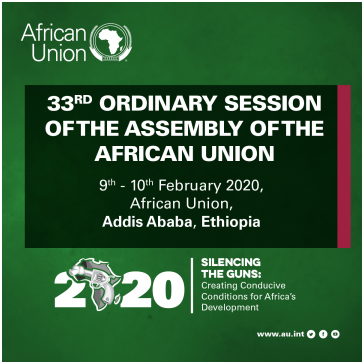
A characteristic of a peaceful state is that political legitimacy is derived from the people, not only through elections but also good citizen-state relations, national unity, popular ownership of political processes and public goods and services. The people are the sovereign. Excluding people from decision-making processes can perpetuate unjust and unequal practices, which in fragile and conflict-affected countries can fuel or re-ignite violent conflict. Our work is important because, literally, we bring the AU to the people and provide a platform for the AU to explain itself to the people it is supposed to be serving.
Our objective of taking the AU to the people have led us to establish an ‘Institute for the Study of the AU in Africa’ as a trans-disciplinary centre of excellence for regional and international academic research, teaching and critical scholarship on human rights and development.
It is a fact that if populations are subject to arbitrary power, and their demands for fairness and justice are not met, there is always the risk of violence. So, we advocate and campaign to change the way the AU and its Member States conduct business that not only keep people locked in poverty and injustice, but excluded from important decisions that affect their lives. We are convinced that no matter how intransigent some regimes are, they ultimately have to listen to the voices of their people.
Many times, the survival of their regimes and governments will ultimately depend on them listening to the voices of their people and the world, especially if a lot of us are saying the same thing – we urge you to join us to use your voice as well. AU Watch media activities, including AU Watch TV and radios will be a major tool to empower people and communities to have the power to claim their basic human rights, to escape poverty, injustice, and misrule.
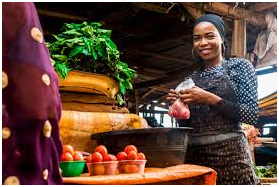
“If the African Union is to have a strong voice, it has to foster constructive criticism, not bury it!”
Reed Brody

What makes AU Watch unique and stands out in relation to other bodies providing policy advice in Africa, is that apart from relying on the informed analytical expertise of our own researchers, who are largely independent about what they write, we are the only organization in Africa and probably in the world that uses outreach services, media and communication in the manner in which we do. AU Watch has its own TV and online radio stations, YouTube channels, blogs etc.
Our goal is to liberate viewers from the traditional cable TV model by empowering our Governing Council and staff to deliver high quality AU Watch news content directly to mobile and smart TV devices to a world-wide audience. AU Watch Media Directorate is guaranteeing quality, speed, simplicity and freedom with playback quality formatted for clear display on all devices, seamlessly integrating with, for example, Chromecast, AppleTV, Roku and other streaming services to turn any device into a cable box + remote control combo.If used creatively, we know that media and communication can have a deep and positive result on the lives of people, especially on the poor and vulnerable.
“Africa’s story has been written by others; we need to own our problems and solutions and write our story.”
Paul Kagame
4. We operate an ‘AU Watch Portal’ online knowledge resource hub with the objective of increasing the availability, accessibility and use of materials on the AU and on African issues generally. The Portal will have an open access digital library with thousands of publications on AU and African issues.


We promote constructive engagement with the leadership of the AU. AU Watch is a media and communications platform, a meeting place, for both our policy makers and the ordinary citizen. We provide an essential debating forum, through our media and other related activities, for navigating the bewildering world of African politics within the foremost African institution by galvanizing our uniquely influential network of journalists, regional scholars, and leaders to shape the AU we all want – a people-centered AU. Through media and communication and outreach work and through our various activities and interventions on all areas of the AU, and through the papers we write, the ideas we generate and the communities we are building, AU Watch shapes policy choices and strategies to create a more secure and prosperous Africa.
Our work is important because, in conjunction with other voices, we increase the impact of the AU by advocating for it to adopt a more sensitive approach to its work. The AU needs to explain itself in a more simplified and practical manner. It needs to involve the ordinary citizen in its activities. This might mean advocating for it to change institutional policies and systems, but also working with staff to work differently especially in fragile and conflict-affected countries. Our work is important because working with the AU and other actors we can assist the AU and its Members, not only to articulate itself properly, but also get it to do things differently. Working with the AU and other partners, AU Watch ensures that every educational institution in Africa have as part of their studies and training a course on AU affairs. We design and develop curricula and teaching materials on the AU for primary and secondary schools, colleges and universities, military and police academies and technical and vocational schools. We assist the AU to raise their profile and their presence in Member States, so that ordinary Africans not only know what the AU is doing, they can also participate in its activities.


Our work is important because we are committed to understanding what our state managers are doing, whatever they say they are doing on our behalf. We are committed to ensuring that the African peoples have a say, and approve whatever programs our AU political class come up with on our behalf. The truth is a ‘people always deserve the government they get!’ So, together we can effect changes! For our sakes and for posterity, we must take action! So, we the peoples of Africa are sending a clear message to the AU and AUMS that we are determined to have an ALMIGHTY say in the manner in which we are being governed and the way the AU and AUMS conduct business, because it is no longer business as usual.
Have you taken a look at the objectives, mission, and vision of the AU? You have to agree that they are admirable and we must add achievable. It’s quite easy to criticize the AU for its litany of failures – and you will be right to do so. The AU and its Members have failed us too often and too many times, for us to have any confidence in them. But maybe the problem is not only theirs. The AU and its Member States by themselves cannot achieve all that they have set out to do. Without the active participation of the African citizenry, civil society and other interest groups, it will be impossible for them to fulfil their very venerable and esteemed objectives. They need the contribution of all those interested in African affairs. We need an Africa enriched by the effective and informed public discourse about what its state managers are doing to transform lives.
So, our work is important because we work with the AU to strengthen its contribution to attaining the objectives it has set for itself. Our work helps the AU and its Recs increase the impact of their work and avoids inadvertently further alienating the growing dissatisfied mass of young people who do not know what it does, and for those who may have some idea, don’t care about it, or worse who believe it is not fit for purpose. Through our media, outreach and education programs and activities, we raise awareness, expand and disseminate information and understanding of AU affairs.

“If we are serious about achieving the ‘Africa We Want’ in 2063, we have to admit to ourselves that things are not going as well as they should in some of our countries on our continent. Our leaders have to take urgent measures to address the challenges that are facing our countries. Unlike our generation which endured colonialism and apartheid for many decades, the youth of today are impatient. They want change now.”
Faith Pansy Tlakula, Chairperson of the African Commission
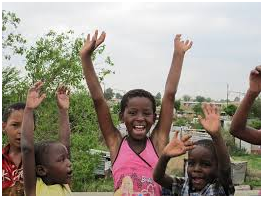

When populations are subjected to arbitrary power, and their demands for fairness and justice are not met, there is always the risk of violence. As a social justice organization working to challenge and combat corruption, poor governance, injustice, inequality and human rights violations in Africa, ourwork is important because we campaign to change the way the AU and its Members conduct business that has kept individuals and whole communities locked in poverty and injustice. We are convinced that no matter how corrupt or intransigent someregimes are, they ultimately have to listen to the voices of their people. Many times, the survival of their regimes and governments will ultimately depend on them listening to the voices of their people and the world, especially if a lot of us are saying the same thing – we urge you to join usto use your voice as well.
(a) For some very complex reasons, which cannot be examined here, effecting some types of changes in Africa are herculean endeavors. Seemingly straight forward issues like FGM, child marriages and getting all our children into school are riveted with challenges. Now try reasoning with Paul Kagame of Rwanda or Paul Biya of Cameroon, or Yoweri Museveni of Uganda orTeodoro Obiang Nguema Mbasogo of Equatorial Guinea (and that is true for all the African gerontocracy) to gracefully hand over power to another generation. I think the point has been made. Our work is important because together and continuously – all of us are going to raise our voices and deliver an almighty shout for the changes we want to see in Africa.
(b) Our work is important because we take our campaigns to the political seats of governments in the West and in Asia, including the UN and the EU, to assist Africa to bring to book western and Asian multinationals that are involved in the rape of Africa.
(c) Our work is important because we take our campaigns not only to the doors of the AU and AUMS, but also to the corridors and board rooms of multinational companies that are colluding with Africa’s leaders to rob from Africa.
(d) Our work is important because we take our campaigns to the airwaves of Western radio and TV stations to assist us spread the word that there is no hiding place any longer for Western and Asian multinationals involved in the rape of Africa.
We are one more voice and action-oriented organization in defence of human dignity and freedoms of all Africans. While recognizing the many challenges faced by the AU and its Members, we advocate finding ways to build on their strengths and use limited resources effectively. In an era of sound bites and partisanship, AU Watch remains dedicated to providing clear, thoughtful, and independent analysis on vital public policy issues. Our work is important, because using all means possible —from radio, blogs, podcast, news and academic journals, Web features, op-eds and TV appearances, to conferences, research reports, speaking engagements, and books — AU Watch works vigorously to present citizens with incisive and understandable analysis of the work of the AU, its institutions and programs.
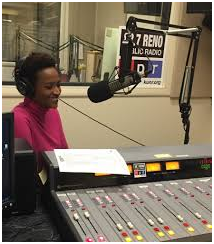

Our work is important because we intend to take international legal actions against international financial institutions that have colluded with corrupt leaders in Africa to hide stolen monies belonging to the African people. We intend to get those monies back!
International institutions like the AU play an important role in supporting governments and communities. It has great potential to properly usher Africa into the 21st century. Unfortunately, the AU’s practical capabilities suffer from a persistent capabilities-expectations gap, falling well short of the ambitious vision and rhetoric contained in many of its documents. The AU is aware that its performance and effectiveness are patchy and, in many cases, not effective. Many of its constituents even doubt its usefulness. As for 2063, that is an unachievable dream if the majority of us don’t buy into the vision.
But we are of the view that the AU’s shortcomings are not fatal. It remains, in our considered opinion, the best alternative for achieving regional peace and prosperity for Africa. Together we can bolster the AU’s capacity in the near and long terms. In that regard, our projects are rooted in local people’s experiences and understanding – providing insight into people’s lives to ensure that our projects reflect their needs and circumstances. Underpinning all our projects is the objective of empowering the African citizenry, helping them make sense of the socio-economic and political events, within their countries and within Africa’s foremost multilateral organisation.
We provide a platform for all of us to engage in productive dialogue with our leaders and taking action to improve our lives. In that regard, our programs are rooted in local people’s experiences and understanding. Our programs help all of us engage in a dialogue with Africa’s state managers, whilst at the same time inspiring all of us to take action to improve our lives. Consequently, strengthening capacity is key to our work with individuals, communities, media professionals, the AU and its member states, and other CSOs. By sharing skills and knowledge, we improve people’s ability to make informed choices and improve their lives

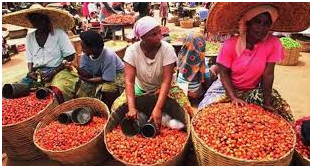
See Dr Feyi Ogunade’s Blog: ‘Musical Chairs How Western NGOs are Engaged in a Big Rip Off!
We reject the popular and conventional paradigm of ‘community development’ as presently conceptualized and executed. You will be hard pressed to find a successful (and now independent) NGO in Africa which has benefitted from community development loans or aid packages. Yet the traditional wisdom by Western donors, the World Bank and other donors is to use the failed community development model. Our development model seeks to assist individuals and, when communities are involved, they must satisfy very stringent criteria.
Our work is important because we intend to make a practical difference in the lives of people by giving practical assistance directly to the most vulnerable members of our communities. Whether we are participating in constructing a library or girls training institute or litigating for the protection of human rights in front of the African Court on Human and Peoples’ Rights, or the Ecowas Court of Justice, our intention is to ensure that we make a difference to address regional challenges that demand AU attention and leadership. We provide practical help like grants, loans and technical assistance for projects benefiting the African youth, women, and vulnerable communities. We assist the AU and its Member States to achieve the goal of serving vulnerable communities through sustainable community development. We are also publishing ‘Musical Chairs How Western NGOs are Engaged in a Big Rip Off!
It is a story of how big Western aid organizations have received billions of dollars in donation but have spent very little in the target countries. Besides, there is very little on the ground to show for the vast amounts of money they claim to have spent. Some of our projects include:
 a. Designing and Developing AU Curricula: Working with the AU and other partners, AU Watch ensures that every educational institution in Africa has, as part of their studies and training, a course on AU affairs. We design and develop curricula and teaching materials on the AU for primary and secondary schools, colleges and universities, military and police academies and technical and vocational schools. What justification can the AU or its Members give us why our schools are not offering courses on ‘AU Law and Institutions’, or ‘AU History’, but instead our institutions teach ‘UN Law and History’? AU Watch has developed a computerized program, ‘Classroom AU’, where we are able to teach thousands of children and people at the same time.We assist the AU to raise their profile and their presence in Member States, so that ordinary Africans not only know what the AU is doing, they can also participate in its activities.
a. Designing and Developing AU Curricula: Working with the AU and other partners, AU Watch ensures that every educational institution in Africa has, as part of their studies and training, a course on AU affairs. We design and develop curricula and teaching materials on the AU for primary and secondary schools, colleges and universities, military and police academies and technical and vocational schools. What justification can the AU or its Members give us why our schools are not offering courses on ‘AU Law and Institutions’, or ‘AU History’, but instead our institutions teach ‘UN Law and History’? AU Watch has developed a computerized program, ‘Classroom AU’, where we are able to teach thousands of children and people at the same time.We assist the AU to raise their profile and their presence in Member States, so that ordinary Africans not only know what the AU is doing, they can also participate in its activities.
 b. Project no Child Left Behind:Our work is important because AU Watch is leading a regional project, where every child we will be school, and stay in school, till the age of 18, within the next 25 years! AU Watch has developed a teaching program that makes it possible to teach thousands of children across the region with limited teachers. The project will also ensure that every child have at last a meal in school.
b. Project no Child Left Behind:Our work is important because AU Watch is leading a regional project, where every child we will be school, and stay in school, till the age of 18, within the next 25 years! AU Watch has developed a teaching program that makes it possible to teach thousands of children across the region with limited teachers. The project will also ensure that every child have at last a meal in school.
Critical thinking, research, evaluation, and analysis underpin all that we do. We carry out authoritative research on the AU in formats accessible to a broad audience, as well as independent and rigorous analysis of critical African, regional and country-specific challenges and opportunities related to the AU, its institutions, and programs. We research the role organizations like the AU and its Recs play in peace, conflict, human rights and development in the region. We advise them on how to reform their policies and practices for working with Member States. We also provide them with context analysis; technical expertise and training on a variety of subjects to ensure their strategies and projects take into account local dynamics. Our research also aims to create an environment for change. We are aware that failure to base policy and programs on sound political, scientific, economic and social analysis can have disastrous consequences for whole communities. Growing inequalities, social deprivation, discrimination, hunger, and disease are all caused by poor decision making and neglecting to implement evidence-based policy. We will be known for our innovative and in-depth approach to research, our high-quality teaching and as a regional knowledge hub that transforms peoples’ lives through our ground-breaking work.


It is true that the AU have invested millions of dollars in aid in many African states every year. However, as the 2011 the World Development Report stated not one low-income, fragile and conflict-affected country had achieved a single Millennium Development Goal. We are convinced that although human security and development are challenging especially in fragile and conflict-affected countries, better results are possible. One of the major challenges the AU has is that millions of the people it is tirelessly working for have no idea what it is doing.
The AU has failed to articulate its own success and has not created accessible space for the vast amount of its citizens to participate in its activities. The programs of the AU seem to lend itself to those who are academically inclined. That must change if it is to remain relevant in the lives of the people for whom it is working.
You doubt this statement? Ok, have some fun. Prove us wrong! Conduct an anecdotal poll. Assemble a few of your family members and friends, and we mean the very highly educated ones. Ask them very basic questions about the AU. Seat back and enjoy the answers.
Our work is important because we pressure the AU to revise its policies and practices for working with Member States especially in fragile and conflict-affected countries. These reforms need to ensure that the monies it is spending make more of a difference to the lives of ordinary people living in Africa. Our research shows that the AU, not unlike many other international institutions often have trouble navigating the challenging and deeply divided political terrain of delivering practical assistance especially in fragile and conflict-affected countries. It has a tendency to engage primarily with central governments and exclude other local and national political representatives and voices. It has in our view over-simplified complex situations and has taken an inflexible approach to their operations in fast-changing environments. This means that millions of dollars of assistance not only risk going to waste, but also exacerbating local conflict tensions and violence.
International institutions like the AU can have considerable influence in poor, fragile and conflict-affected countries, but often focus too narrowly on their relationship with central governments to guide their priorities. In order to enhance the prospects of locally-owned progress towards meaningful peace and development, international institutions like the AU should support the development of a culture of inclusion, participation, transparency, and accountability between a government and its citizens. Our work is important because we mount vigorous campaigns to achieve all of that.
While we monitor the activities of the AU and its Members, and work to hold them accountable to the standards they have set for themselves, and also work to address human rights violations, good governance, security issues and contribute to the alleviation of the symptoms of poverty, we also campaign to tackle the causes of these ills. For example, we are not daunted to tackle the cancer of corruption head-on. We are producing documentaries and TV series that challenge corruption. Our weekly TV program ‘A Focus on the AU Anti-corruption Board’ explores the issues of corruption in Africa with the AU and AUMS. Our Online radio and monthly magazine regularly carry issues on corruption.
• We are developing indices and parameters to measure corruption across the whole range of activities. We intend to publish:
– Corruption Perceptions Index
– Regional Corruption Barometer
– Bribe Payers Index
– Regional Corruption Report
– Regional and country reports
– Policy positions
– Working papers
• We are also looking at developing a corruption costs index in co-operation with research institutions to accurately measure the real cost of corruption to societies and economies around the world, and use this as a tool in our fight against corruption.
The principle that underpins our work is empowering people and communities to change, to speak out and claim their human rights. If the vision as outlined by Dr Nkosazana Dlamini Zuma, is to be realized then we have no choice but to go after the system and individuals who systematically destroy the lives of our youths.

HELP AU-Watch Stop Them! AU Watch details and exposes the impact of bribery and corruption on democracy, governance and development. Join us!
(a) We are collaborating with leading academic institutions in Africa to publish a peer review journal specifically on the AU – the ‘Journal of African Studies on the African Union’. Our objective is for the journal to achieve the status of Africa’s leading academic journal of international relations.
(b) Our monthly news magazine ‘AU Watch News,provides news, interviews, articles, op-eds, authoritative analysis and up-to-date commentary on current topics and matters.
(c) We are publishing a human rights Yearbook called ‘AU Watch ‘State of the Union (SOTU): Human Rights’, where we review the human rights landscape for the past year.
(d) We are publishing a development Yearbook called ‘AU Watch ‘State of the Union (SOTU): Development’, where we review the economic and development landscape for the past year.
(e) We are publishing a ‘Regional Insecurity Index’ magazine, outlining how fragile and conflict-affected countries are combating human insecurity.
International institutions like the AU can haOur Regional Ambassadors campaign around the world on behalf of AU Watch. From promoting and protecting human rights in Africa, campaigning for peace and security, good governance, social justice and inequalities to building schools and homes for disadvantaged communities, campaigning for climate change adaption and helping (women) farmers get fairer prices for their farm products, we take the fight against corruption, human rights violations, poverty injustice and inequality where it belongs – the decision makers at the AU and the UN and international organization.ve considerable influence in poor, fragile and conflict-affected countries, but often focus too narrowly on their relationship with central governments to guide their priorities. In order to enhance the prospects of locally-owned progress towards meaningful peace and development, international institutions like the AU should support the development of a culture of inclusion, participation, transparency, and accountability between a government and its citizens. Our work is important because we mount vigorous campaigns to achieve all of that.
While we monitor the activities of the AU and its Members, and work to hold them accountable to the standards they have set for themselves, and also work to address human rights violations, good governance, security issues and contribute to the alleviation of the symptoms of poverty, we also campaign to tackle the causes of these ills. For example, we are not daunted to tackle the cancer of corruption head-on. We are producing documentaries and TV series that challenge corruption. Our weekly TV program ‘A Focus on the AU Anti-corruption Board’ explores the issues of corruption in Africa with the AU and AUMS. Our Online radio and monthly magazine regularly carry issues on corruption.
• We are developing indices and parameters to measure corruption across the whole range of activities. We intend to publish:
– Corruption Perceptions Index
– Regional Corruption Barometer
– Bribe Payers Index
– Regional Corruption Report
– Regional and country reports
– Policy positions
– Working papers
• We are also looking at developing a corruption costs index in co-operation with research institutions to accurately measure the real cost of corruption to societies and economies around the world, and use this as a tool in our fight against corruption.
The principle that underpins our work is empowering people and communities to change, to speak out and claim their human rights. If the vision as outlined by Dr Nkosazana Dlamini Zuma, is to be realized then we have no choice but to go after the system and individuals who systematically destroy the lives of our youths.
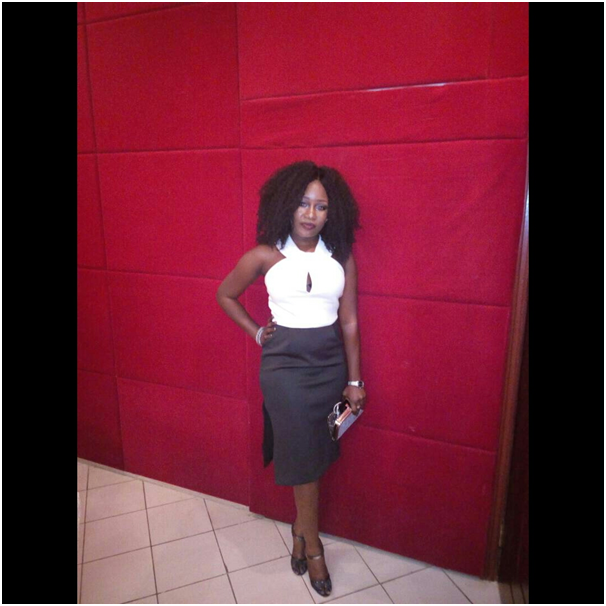
WE ARE AU WATCH AND WE MEAN BUSINESS. COME JOIN US AND LET’S CREATE THE AFRICA WE ALL WANT! COME JOIN US AND LET US MAKE 2063 A REALITY, IF NOT FOR OURSELVES, BUT FOR OUR CHILDREN!
How can you help us? See our vacancy notices